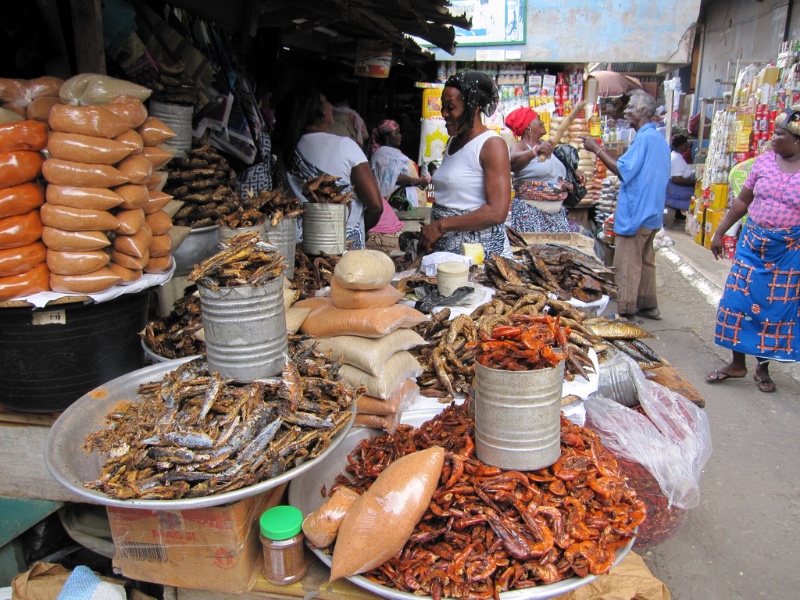Trading in Ghana is reported to have begun with the arrival Europeans on the coast of the then Gold Coast. Over time, it has become one of the most widely practiced forms of business, employing a significant portion of the general population at various levels. With many markets strewn across the length and breadth of the country, few of them are known both locally and internationally as hotspots and oftentimes, tourist attractions. One of them is the Makola Market.
Makola Market is a well-known marketplace and shopping area in the heart of Accra, the nation of Ghana’s capital. The marketplaces and the streets around sell a wide variety of goods, from land snails to vehicle parts. The market, which is dominated by women traders, sells pots and pans, fresh produce, manufactured and imported meals, clothing, shoes, tools, and other household items. The market also sells jewellery that was fashioned with locally manufactured beads.

Like any other place, the market got its name through a series of events. Recounted in a post on social media platform Facebook, here is the story as told by Ablade TV Online:
Once upon a time, immigrant Hausas brought cattle to trade in Ga Mashie and its surrounding communities. They settled at the place we know today as “Cow-Lane” as they were often seen driving their herds of cattle through the narrow lanes of the area. When the Hausas slaughtered some of their cattle, they either sold the carcass raw or more often, as *”khebab”, “popularly known as Chinchinga”. The Chinchinga sellers sold late into the night and often had the embers of their charcoal fire still hot in the mornings.
Coincidentally, around that time, Ga women had recently taken to coal pots more than hearths. Thus, they often went to pick pieces of the charcoal fire in ladles or broken pots / saucepans, to kindle their fires in their kitchens. When these women went to the sprawling Chinchinga market near Cow-Lane to pick charcoal fire, they would announced their mission simply as *”Mako la”, a Ga phrase meaning “I’ll pick fire” before the Chinchinga sellers would mistake them for their clients.
Eventually, the sprawling Chichinga market area where women picked charcoal fire, adopted that name “Makola” as it often happens in our culture.”
Built in 1924, the market was demolished on August 18, 1979 by the Rawlings administration in an effort to boost the country’s economy, 55 years after it was founded because it was thought that several products that were illegal in Ghana at the time were being sold there, and the market women were blamed for the nation’s financial woes. Today, the market has grown into one of the three biggest in the country and a major centre for business.












